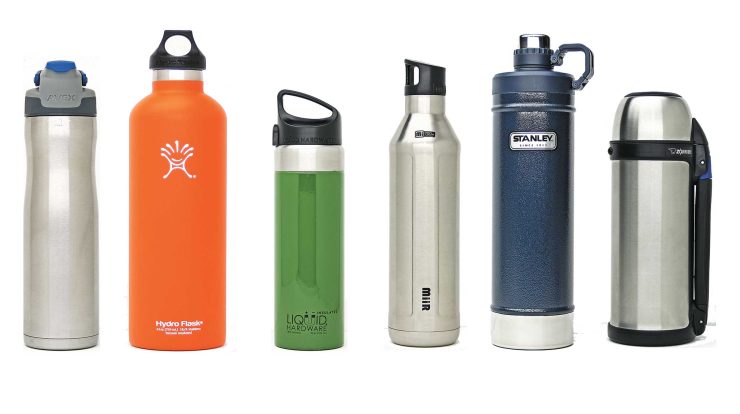
The Camp Lejeune water contamination incident is a widely recognized environmental tragedy that had a profound impact on the lives of numerous military personnel and their families.
The contamination took place at Camp Lejeune, a United States Marine Corps Base located in North Carolina, where hazardous chemicals were discovered in the water supply. As a result of exposure to contaminated water, individuals have experienced health problems and are now engaged in a legal battle seeking justice and compensation.
Certain criteria must be met to qualify for compensation and initiate legal action. It is crucial to understand the key steps involved in pursuing your case. In this article, you will explore the important topic of determining eligibility for the Camp Lejeune water contamination lawsuit.
Table of Contents
Understanding the Criteria for Eligibility
Determining eligibility involves meeting specific criteria set forth by the legal system. To qualify for compensation, individuals must demonstrate that they were exposed to the contaminated water at Camp Lejeune during the designated period.
The first key criterion is establishing a connection to the affected base. According to the U.S. Department of Veteran Affairs, this would be the place of serving. You could qualify for disability and health care benefits if you served at the North Carolina Marine Corps Base Camp Lejeune location between August 1, 1953, and December 31, 1987.
Secondly, it is crucial to have evidence of exposure to the contaminated water. This can be proven by providing documentation, such as official military or medical records, indicating your presence at the camp during the designated period.
Furthermore, it is essential to note that the lawsuit considers specific health conditions linked to water contamination. These conditions include various types of cancer, neurological disorders, kidney problems, and reproductive disorders. If you have been diagnosed with any of these illnesses and can establish a connection to the camp, it can significantly support your eligibility for compensation.
Exploring Qualifying Medical Conditions
One of the crucial aspects in determining eligibility for the Camp Lejeune water contamination lawsuit is understanding the qualifying medical conditions associated with the exposure.
The water at the camp was contaminated with harmful chemicals, specifically VOCs (Volatile Organic Compounds), which include 70 other hazardous substances. As these chemicals have been associated with various health problems, recognizing the symptoms of Camp Lejeune water contamination is, therefore, essential. It can help individuals identify potential medical conditions that meet the criteria for receiving assistance.
It is worth noting that several symptoms and health conditions have been recognized to be linked with contamination exposure and are eligible for compensation. According to TorHoerman Law, these include certain types of cancer, such as adult leukemia, kidney, liver, bladder, and breast cancer. Neurological disorders like Parkinson’s disease and ALS are also qualifying conditions.
Additionally, reproductive disorders such as infertility, miscarriage, and birth defects are considered for compensation. Suppose you have experienced any other health issues you suspect may be related to water contamination. In that case, it is advisable to consult with medical personnel for an accurate diagnosis and evaluation.
Gathering Evidence and Documentation
It is essential to compile proof and supporting paperwork while attempting to qualify for the lawsuit. As per a Reuters report, the government has admitted that the base’s drinking water was tainted from 1953 until 1987.
Moreover, chemicals in the water are likely to raise the risk of cancer and other health issues for locals and tourists, according to the Agency for Toxic Substances and Disease Registry. It is essential to understand here that these are only statements but can only be taken into account when you decide to take action and have been a victim of the issue.
As a crucial step of this action, gathering evidence will help establish your connection to the affected base and the exposure to the contaminated water.
One important piece of evidence is official military records. If you were a service member stationed at the camp during the designated period, obtaining your military personnel records can help demonstrate your presence at the base.
Medical records are also vital in supporting your eligibility. These records can include test results, doctor’s notes, and treatment history, providing evidence of the health issues you have experienced.
Consulting with Legal Experts
Navigating the legal process for the Camp Lejeune water contamination lawsuit can be complex and overwhelming. Therefore, it is highly recommended to consult with legal experts who specialize in this area to ensure you understand the eligibility criteria and the necessary steps to pursue compensation.
Seeking the assistance of a legal expert, such as an attorney, can be invaluable in navigating your path forward. With their expertise, they can assess your case, establish your eligibility, and assist you in gathering the necessary evidence and documentation. Moreover, they can provide guidance on the most suitable course of action based on the unique aspects of your situation.
During a consultation, you’ll have the opportunity to discuss your exposure to contaminated water, any associated health issues, and obtain tailored advice for your specific circumstances. They will listen to your story, review your evidence, and provide an informed opinion on your eligibility for the lawsuit.
Filing a Lawsuit
According to NPR, the completion of the 9/11 settlements took around six years. Although the Lejeune case has gotten off to a quicker start, it might be far bigger. The Navy has already received over 65,000 claims; many more are anticipated.
Thus, filing a lawsuit will be the next step once you decide to seek justice. It involves initiating a legal process to seek compensation for the harm you suffered from exposure to the contaminated water. For this, you need to consult with your attorney to begin the process.
To begin with, your attorney will prepare and submit a formal legal document known as a complaint. The complaint outlines the details of your case, including your connection to the camp, evidence of exposure to the contaminated water, and the resulting health conditions you have experienced.
After filing the complaint, the legal process will progress, and various stages may follow. The process may involve the exchange of information and evidence through the discovery phase, as well as potential negotiations for a settlement. In the event that a settlement cannot be reached, the case will proceed to trial, where the final decision will be made by either a judge or a jury.
Eligibility Determination Is Crucial for the Lawsuit
Determining eligibility for the Camp Lejeune water contamination lawsuit is crucial for those seeking justice and compensation. By understanding the criteria for eligibility, individuals affected by the water contamination can pursue their rightful claims.
It is crucial to remember that each case is unique, and eligibility will depend on individual circumstances. Consulting with legal specialists specializing in this area is highly recommended to ensure accurate guidance and support.
By taking the necessary steps, gathering the required evidence, and working with experts, individuals can increase their chances of receiving the justice and compensation they deserve.






